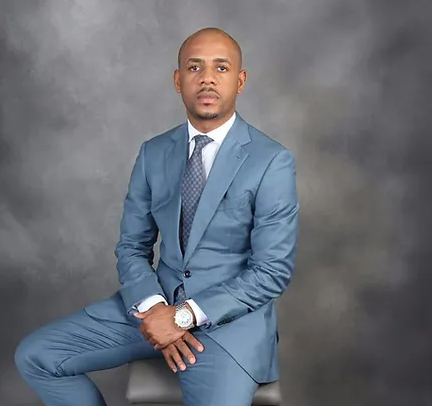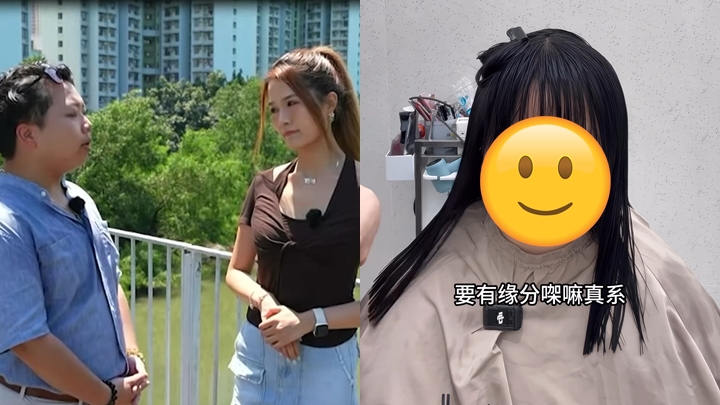Mother ignores 3 warning signs, 5-year-old daughter has advanced brain cancer. I thought I was just passing out from playing in the sun.
Holly Brown, a 31-year-old British mother from Clacton-on-Sea. A housewife with four children, Clacton-on-Sea, Essex, faced grief and guilt when her five-year-old daughter, Olivia, was diagnosed. It is brain cancer that has spread.
At the end of May last year Olivia felt dizzy and vomiting. Holly thought it was just heat stroke from playing in the sun for too long. She made her child drink water, apply a cold compress, and rest in her room. By evening the child was back to being happy again. He told her not to worry too much.
However, the next day, Olivia was still vomiting and tired. Holly didn’t realize that this was because the baby hadn’t recovered enough. So he took care of his child as before without realizing that a serious disease was hiding.
Even after going to the doctor and taking the medicine as directed. Olivia’s condition has not improved. She vomited frequently, had headaches and was so weak that she could not stand on her own. Holly decided to take the baby to a big hospital.
Doctors discovered that Olivia had a dangerous brain tumor. which blocks the flow of cerebrospinal fluid Emergency surgery was needed to save his life. But the tumor was in a place where it was not possible to remove it completely. And it was discovered that the cancer had spread to the spinal cord.
Holly was devastated when she found out about the diagnosis, she said: “At first I thought my baby was just sick. But it turned out that the child had a malignant tumor growing in the small part of his brain. which controls balance and movement.”
Just a few days Olivia had to go through two major surgeries. But only 95% of the tumor can be removed because the rest is so close to the brain that it cannot be removed without damaging the brain.
Holly shares her daughter’s story to warn parents to watch out for early signs of an aggressive brain tumor (Diffuse Intermittent Pontine Glioma (DIPG)) in children ages 3-8 and can be confused with other common medical conditions:
1. Vomiting or nausea for no apparent reason. Continuous vomiting without signs of food poisoning or general disease It usually occurs in the morning or when changing postures. Movement and balance problems
2. Difficulty walking, standing unsteadily, or changing position and losing balance There may be hand tremors or muscle weakness. changes in the eyes
3. Swollen eyes, strabismus, or abnormal vision such as seeing blurry images or not being able to focus.
Today, Olivia continues to fight the disease. Holly hopes this story will encourage parents to be aware of their children’s abnormalities early. To avoid the difficult situation her family was facing.
2024-11-24 04:43:00
#Mother #ignores #warning #signs #5yearold #daughter #brain #cancer #thought #fainting #playing #sun
**What are some common “red flags” that parents should be aware of that might indicate a serious underlying medical condition like DIPG, and how can they best advocate for their child when they suspect something is wrong?**
## Interview: Recognizing the Silent Threat: A Mother’s Story and a Call to Action
**Introduction:**
This interview will delve into the heartbreaking story of Olivia, a five-year-old girl diagnosed with an aggressive brain tumor. We are joined today by Holly Brown, Olivia’s mother, and Dr. [Expert Name], a pediatric oncologist specializing in brain tumors. We aim to raise awareness about the subtle signs of this devastating disease and encourage early intervention.
**(Section 1: The Family’s Experience)**
**Interviewer:** Holly, thank you for sharing your incredibly difficult experience with us. Can you walk us through the initial symptoms that Olivia exhibited and your initial thoughts at the time? What were the biggest challenges you faced during those early days after the diagnosis?
**Holly:** (Shares her experience, focusing on the initial symptoms, her initial interpretations, and the emotional rollercoaster of the diagnosis.)
**Interviewer:** Dr. [Expert Name], can you elaborate on why these seemingly common symptoms might be easily overlooked or mistaken for something less serious?
**Dr. [Expert Name]:** (Explains the challenges in differentiating early signs of brain tumors from common childhood illnesses. Discusses the gradual onset of symptoms and the need for heightened awareness.)
**(Section 2: Understanding Diffuse Intrinsic Pontine Glioma (DIPG) )**
**Interviewer:** Dr. [Expert Name], can you provide our viewers with a clearer understanding of DIPG? What makes this specific type of brain tumor so challenging to treat?
**Dr. [Expert Name]:** (Provides a concise explanation of DIPG, its characteristics, and the complexities surrounding its treatment. Discusses the challenges posed by the tumor’s location and its aggressive nature.)
**Interviewer:** Holly, navigating the medical complexities while also supporting your daughter through this ordeal must be incredibly demanding. What advice would you offer other parents facing a similar situation?
**Holly:** (Shares her insights on coping mechanisms, communication with medical professionals, and finding support networks.)
**(Section 3: Early Detection and Raising Awareness)**
**Interviewer:** Dr. [Expert Name], how crucial is early detection in improving outcomes for children with DIPG?
**Dr. [Expert Name]:** (Emphasizes the importance of early diagnosis and intervention, discussing how time is often a critical factor in managing this disease.)
**Interviewer:** Holly, your decision to share Olivia’s story publicly is incredibly courageous. What message do you hope to convey to parents and caregivers today?
**Holly:** (Highlights the importance of awareness, encourages parents to trust their instincts and seek medical advice when they notice any unusual symptoms in their children. Stresses the need for support and research funding for DIPG.)
**Closing:**
**(Interviewer** Thanks to both Holly and Dr. [Expert Name] for this enlightening and thought-provoking conversation. We hope that sharing Olivia’s story will empower parents to be more vigilant about their children’s health and advocate for early intervention when necessary.).
*(Optional)* **Call to action:**
Encourage viewers to learn more about DIPG, support relevant organizations, and advocate for increased research funding.
**Note:**
This interview structure is a suggestion and can be adapted based on the guests’ availability and expertise. It is crucial to approach this sensitive topic with empathy and respect, ensuring that the focus remains on raising awareness and providing valuable information to viewers.


